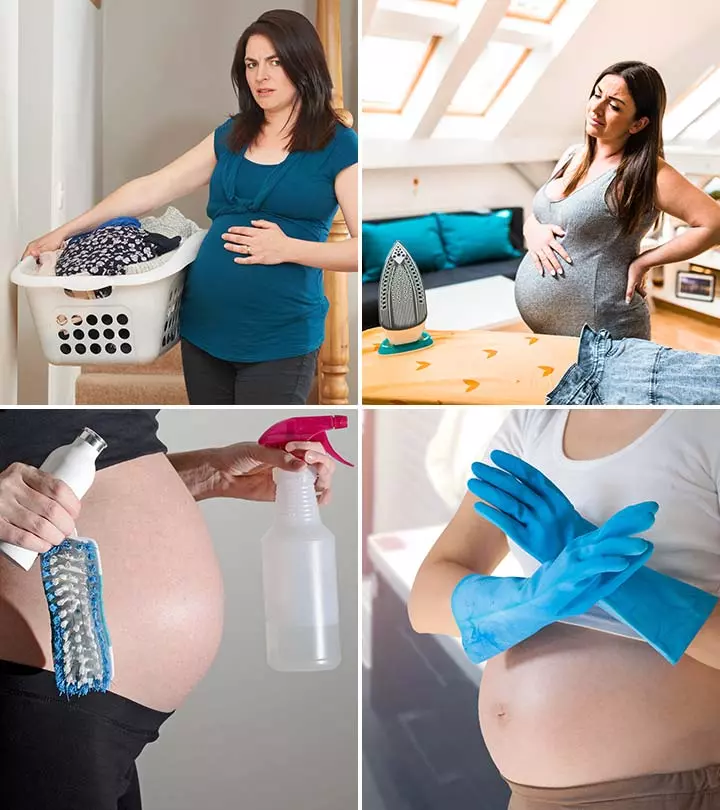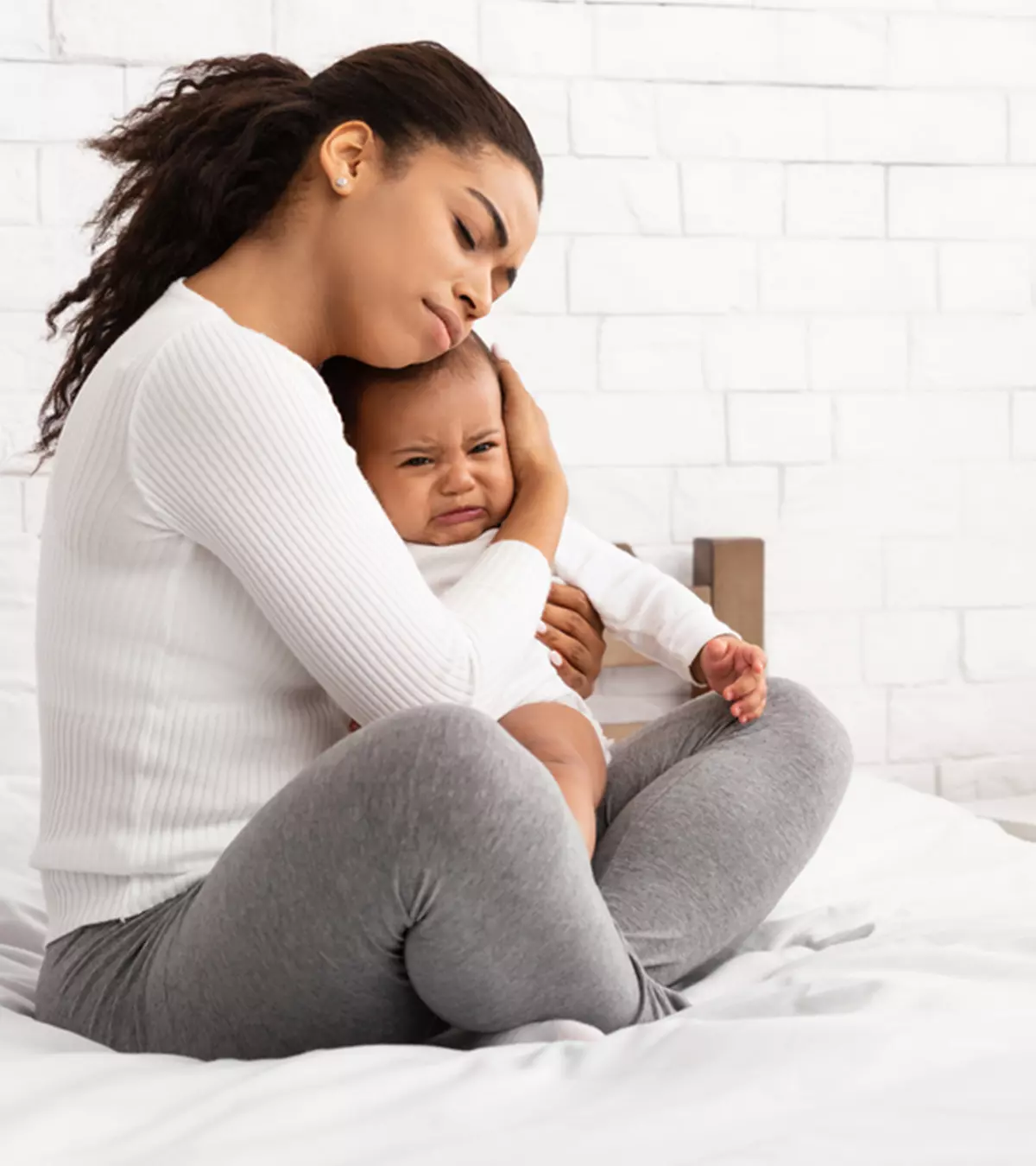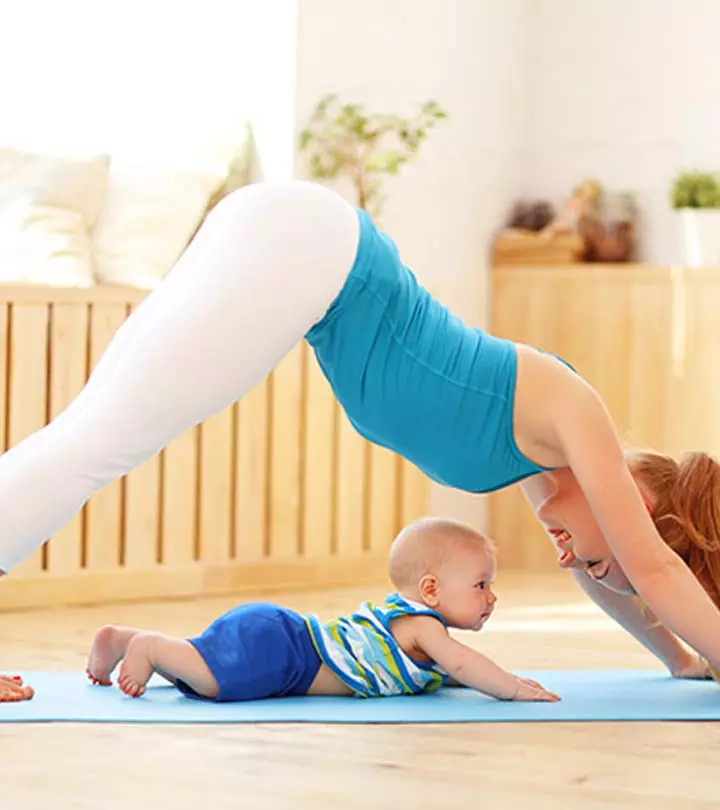

Image: iStock
You’ve painted the nursery, you’ve had your baby shower – the gifts are unpacked and ready for your bundle of joy! Yes, you’ve been brought up as an independent woman who can work up to the last month of her pregnancy, and have been raised not to depend on anyone else. However, it is advisable that you do not undertake certain household chores in the second and third trimester in order to protect the both of you. So, take a deep breath and tuck away your inner Monica Chandler, and read on to find out household chores that are best handed off to others while waiting for your little one to arrive.
1. General Cleaning
Nearly every cleaning agent flooding the market is loaded with harsh chemicals or toxins. If your skin comes into contact with some reactive/active substances in these cleaners, it could cause allergic – potentially harmful – reactions (1). Some women experience more sensitivity in their skin during their pregnancy, and you may find that you react to even the common hypoallergenic products that you used to use before pregnancy. Even if you are buying green, eco-friendly products, be sure that you are buying products that are appropriately certified. One of the reasons women are asked to avoid general cleaning chores during pregnancy is because they usually involve some amount of bending – which can lead to an inflamed sciatic nerve. Pregnancy can result in a softened ligaments and joints, making it painful for you to do chores you used to carry out so easily prior to conceiving.
2. Litter Cleaning
By all means, snuggle, pet, and fuss over your cat, but as far as possible, pass on cleaning the litter duties to another person. From their adventures of chasing rodents and birds, cats tend to carry the Toxoplasma gondii parasite which can be passed on to the person cleaning the cat’s feces (2). This can often lead to infections, which are harmful to your pregnancy, and eventually emotional grief. If you absolutely have nobody else who can clean the litter for you, ensure that you are well protected by wearing gloves, nose and mouth mask, and preferably an outer coat to protect microbes from sticking to your garments. Have a thorough wash afterward to be on the safe side.
3. Bathroom Cleaning
From the sheer volume of chemicals used in cleaning agents specifically made for toilets and bathrooms, this task should be a no-brainer when it comes to chores to be avoided. The fumes from the cleaning agents are considered harmful for the baby (3). Pregnant women experience enhanced sensitivity to smells, use your olfactory senses to guide you with products that can or cannot be used. One option would be to use safe homemade cleaners, but these may or may not clean as efficiently as those loaded with chemicals. Even having delegated the task, ensure that windows and doors are open during cleaning time and that you are in a well-ventilated space to protect yourself and the baby from harsh fumes.
4. Moving Heavy Weights
Using your maternity leave optimally to move into that new house? Well, you’re just going to have to play Boss Lady and order others on where the furniture, china, and the antique wooden shelf from grandmother’s inheritance should be placed. As with general cleaning, moving heavy stuff around can worsen the strain on your back. As you progress in your pregnancy, the growth of the belly tends to stress your back, and for some women, this can lead to acute pain. Your doctor might have already advised you against such a chore, but here’s a reminder just in case!
5. Curtain Hanging and Fans Cleaning
This chore is risky even for a person who is not pregnant. The chances of falling from the ladder and losing your balance are just two of such risks. With a growing belly and a strained back, add to which a general loss of equilibrium, this chore should be off your list even if you have no one to delegate.
It is advisable to avoid the chores listed in this article, but we are aware that not every woman has the luxury of choices. Where possible, use safe, certified products to protect yourself and the baby. If you have other children, get them involved gradually in easy chores like folding laundry or ensuring their personal spaces are as clean and organized as possible to take off some of the pressure. Speak to your healthcare professional regarding the possibility of doing some of these chores if they are unavoidable; they should be able to guide you regarding the weight limits and safe products.
Community Experiences
Join the conversation and become a part of our nurturing community! Share your stories, experiences, and insights to connect with fellow parents.











